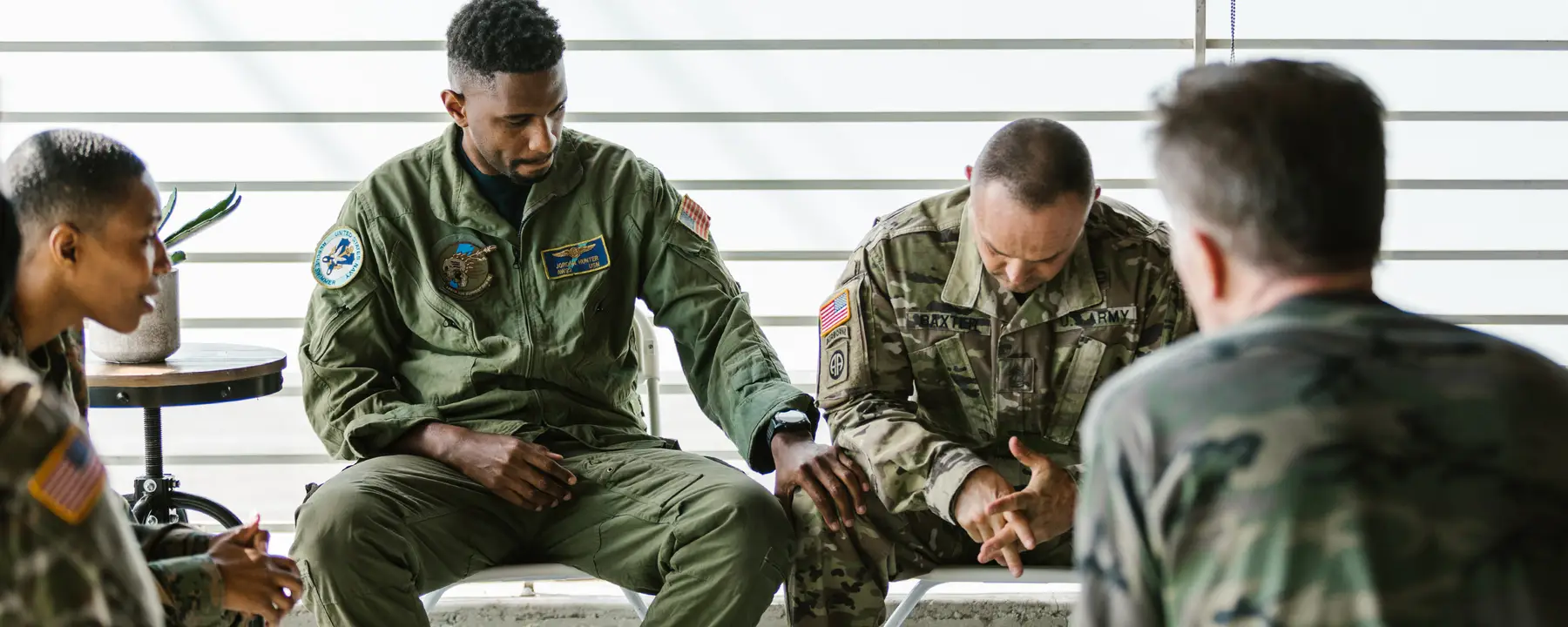Improving the mental and behavioral health of Service members through data-driven solutions
Behavioral health, including substance use, mental health, and health behaviors, is critical to our nation’s military readiness. For more than 40 years, RTI has been doing work that benefits Service members. Our leading-statistical techniques allow us to characterize behavioral health issues within active-duty United States Military.
Military behavioral health studies and research specialties include:
- Conducting a survey of health-related behaviors among military personnel from 1980 through 2008, which used sophisticated sampling to interpret behavioral health information collected and study guided policy and funding decisions.
- The first multi-site randomized controlled trial of stellate ganglion block for the treatment of posttraumatic stress disorder symptoms.
- Serving as a core collaborator for the Pharmacotherapies for Alcohol and Substance Use Disorders Alliance (PASA) consortium.
- Interventions for heavy drinking in Service members and opioid misuse and management.
- Researching stigma associated with treatment-seeking for substance abuse and mental health.
- A randomized effectiveness trial of a systems-level approach to stepped care for war-related PTSD, and a randomized trial of a therapist-assisted internet-based intervention for combat-related PTSD.
- Assessing mental fitness in Army basic combat training recruits.
- Identification of patterns of alcohol and tobacco use and dependence, and unit level influences regarding alcohol, tobacco use, and other health behaviors.
Ongoing research in behavioral health allows our Military partners to identify, better understand, and analyze issues Service members face.











